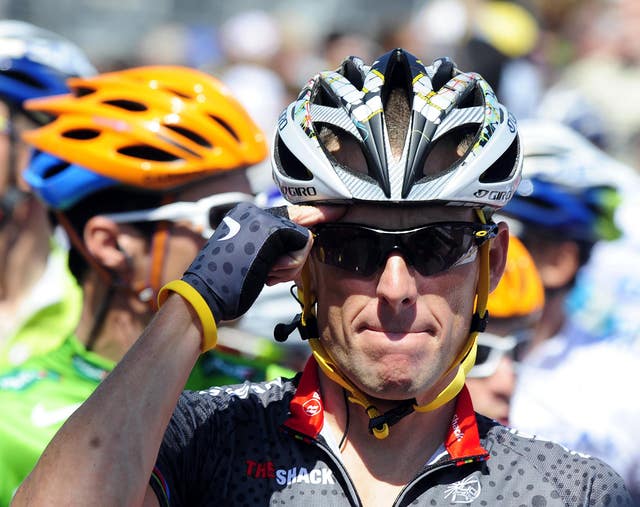"I'm not going to lie to you," Lance Armstrong says in ESPN's new documentary LANCE. "I'm going to tell you my truth."
It will always take a leap of faith for anyone to believe a man guilty of perpetuating one of the biggest lies in sporting history for as long as he did.
Over the course of nearly three-and-a-half hours – screened in two parts with the first to be available via ESPN Player from May 25 – director Marina Zenovich seeks to tell a definitive version of the tale with the help of friends, family, former team-mates, officials and journalists – and the man himself.
The inspiring rise and dramatic fall from grace.@30for30's 'LANCE' is coming May 25th on ESPN Player 📺 pic.twitter.com/iCF7AQmN3o
— ESPN Player (@espnplayer) May 14, 2020
Armstrong sat down for a series of interviews which took place between March 2018 and the summer of 2019, inviting the film crew into his home and along for the ride as some of the lingering legal cases resulting from his deception rumbled on.
Two decades on from the start of David Walsh's work exposing Armstrong's fraud and seven years after the Texan finally admitted to Oprah Winfrey that it was true, this is by now a well-told story: beating cancer, seven Tour 'wins' between 1999 and 2005, the huge foundation that Livestrong became, and the unrelenting lies and intimidation that accompanied it all before he was stripped of his titles.
Unsurprisingly major revelations are thin on the ground; those there are perhaps highlighted by the discovery that Armstrong has never in his life peeled a potato and, considering the evidence, probably should not try.
But we learn most about Armstrong's state of mind – both at the time and also now, all these years later. And that mindset has not shifted all that much.

He sticks to his guns. His defence – amounting to little more than 'everyone else was doing it so why couldn't we?' – should attract little sympathy but his former team-mates paint the same picture of cycling's darkest days.
Former USA Cycling chief executive Derek Bouchard-Hall says he was one of the "clean" riders who missed out due to his refusal to dope, yet later says of Armstrong's seven Tour 'wins' that "all the praise we put upon him was well deserved".
Armstrong does now accept he should be apologetic to a handful of individuals for his cruel abuse. Asked what was the worst thing he had ever done, he said it was calling former soigneur Emma O'Reilly – whose revelations put the first cracks in his story – "a whore".
But the bully in Armstrong remains on show as others still get both barrels, none more so than Floyd Landis, the former team-mate who pointed the finger at Armstrong after being stripped of his own 2006 Tour win.
G – bummer, dude. I got 7 of em if you wanna borrow one. https://t.co/K1jbDeUkx1
— Lance Armstrong (@lancearmstrong) October 10, 2018
Ultimately, Armstrong remains obstinate about his actions. Empathy for those he made suffer is in short supply.
"I wouldn't change a thing," he says, repeating a line he has parroted before.
"I needed a f****** nuclear meltdown, and I got it."
Early in the film, viewers are warned by two of the journalists who followed the story most closely to be wary of Armstrong trying to use the film to make people feel sorry for him.
But by the end, he simply cuts a sorry figure.
It is a complicated story, and the work of Armstrong's foundation in the fight against cancer cannot be dismissed, but his defiant stance 15 years on from his final Tour "victory" is ultimately just sad.
"All I can do is say I'm sorry and move on," he says. "And hope that others do too."
/https%3A%2F%2Fsportsmole-media-prod.s3.gra.io.cloud.ovh.net%2F19%2F21%2Flance-armstrong.jpg)
/https%3A%2F%2Fsportsmole-media-prod.s3.gra.io.cloud.ovh.net%2F24%2F46%2Fjude-bellingham.jpg)
/https%3A%2F%2Fsportsmole-media-prod.s3.gra.io.cloud.ovh.net%2F24%2F36%2Fhannah-cockroft.jpg)
/https%3A%2F%2Fsportsmole-media-prod.s3.gra.io.cloud.ovh.net%2F24%2F36%2Fsarah-storey.jpg)
/https%3A%2F%2Fsportsmole-media-prod.s3.gra.io.cloud.ovh.net%2F24%2F35%2Fpoppy-maskill_1.jpg)